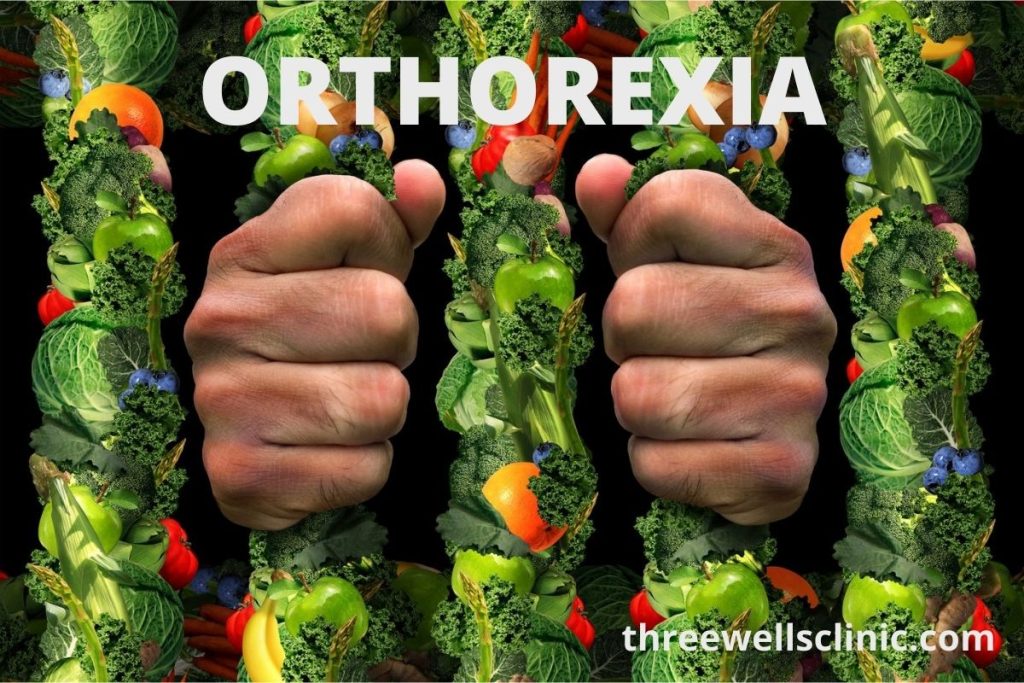There is something I want to share with you all…
I am recovering from an eating disorder called orthorexia nervosa.
For so long, I didn’t know it was a factor in my life. Not until a month before my 48th birthday.
I actually felt IMMENSE RELIEF when I was diagnosed. It was the missing piece to a puzzle I had been trying to put together for years, actually decades.
I’m sharing because…
I want to be open about it with you.
It is more common than we realize.
If someone else is suffering too, they might not yet know how much help is out there for this.
What is orthorexia?
The short answer is: an unhealthy focus on eating in a healthy way.
Eating healthy. That doesn’t sound like it should be a bad thing, right?
But it can create an obsession or fixation to such a degree that it affects your day-to-day-stress, your relationships, and most importantly, your health and peace of mind.
It is not yet listed as its own entry in the DSM (Diagnostic and Statistical Manual). Right now, for insurance purposes, it falls under “Other specified feeding or eating disorder.” They are still finalizing the criteria and debating if it belongs solely under eating disorders, or as a subset of anxiety or OCD.
But it is every bit as stressful as the three most well-known eating disorders – anorexia, bulimia, and binge eating.
The criteria fall into categories of food fixation, extreme dietary rules, emotional distress, morality of food (good vs. bad), and social behavior.
Some warning signs of orthorexia*
- Obsessive concern about the health of ingredients/ Compulsive checking of ingredient lists and nutritional labels
- Obsessive concern with food and the development of health consequences
- Cutting out an increasing number of food groups (all sugar, all carbs, all dairy, all meat, all animal products, etc.)
- An inability to eat anything but a narrow group of foods that are deemed ‘healthy’ or ‘pure’/ Feelings of guilt, shame, or fear when consuming unhealthy foods
- Unusual interest or judgment in the health of what others are eating
- Food fixation affecting social interactions, e.g. spending hours thinking about what food might be served or self-isolating to prevent “breaking the rules”
- Showing high levels of distress when ‘safe’ or ‘healthy’ foods aren’t available
- Obsessive following of food and ‘healthy lifestyle’ blogs on social media
- Body image concerns might or might not be present
- Desire for weight loss might or might not be a factor
- Excessive exercise or using exercise as self-punishment might or might not be a factor.
It is also very commonly associated with anxiety and perfectionism.
How does it happen?
As you can imagine, it’s different for everyone, but here are some common ways it starts sneaking into someone’s life:
- To lose weight or look better
- To avoid medical illnesses and diseases, or even as part of a treatment for a diagnosis
- To gain a sense of control in otherwise stressful life circumstances
- To avoid foods due to diagnosed or undiagnosed allergies
- To feel a part of a community sharing similar practices
Again, items on the symptom list above can start off as sounding like good, healthy behaviors. And no single item can make the determination.
For example, just because you often check ingredient labels, it doesn’t mean you have orthorexia.
Where it crosses over into disordered territory is based on the amount of fixation and distress it causes.
However, the person might not be aware their thoughts and actions are crossing over, especially when they are in social or professional communities who follow and reward similar behaviors.
Getting help
For those who recognize themselves in the criteria above, it is very important to see an experienced professional who can guide you through confirming it for you. My best recommendation is seeing both a dietitian and a counselor who are trained in treating eating disorders, and orthorexia specifically, from a non-diet approach.
Click here to see examples of what it was like for me and how it can go undetected for so long.
Want to get my posts delivered straight to your inbox?
Get the newsletter!
Stay up-to-date with Three Wells latest news, events, as well as tips to help improve your overall health, wellness, and lifestyle!
*Criteria compiled from several sources, notably NEDA, the National Eating Disorders Association.
This post may contain affiliate links, meaning I may receive a commission (at no extra cost to you) if you use that link to make a purchase. See my disclaimer.
Is Three Wells right for you?
Get a free 15 minute Q&A consultation to find out!
